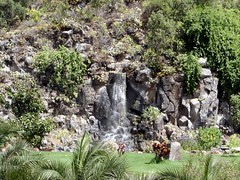 |
A few days ago David Goldes created a very enlightening article over at CollaborationLoop around the transition businesses are going through at this very moment from being a labour-based company to an asset / knowledge based company. In The Dawn of the Knowledge Economy David makes quite a few remarks that would sound very familiar to all those folks who have been reading elsua for some time now and it would even sound more familiar if you have been doing yourselves some work around the world of Knowledge Management or you are knowledge workers yourselves. |
However, from the entire article here are a couple of paragraphs, courtesy from Chris Zaluski, that I found much more relevant and interesting to quote as it touches base on something that I have been commenting on all along:
“Knowledge management revolves around being able to harness the intangible knowledge and ideas within an organization in order to creatively guide the company. Unlike the tangible assembly line products of our forefathers, there is no easy way to gauge a knowledge worker’s productivity. Likewise, knowledge managers are left without step-by-step management practices. These are two truths that many traditional, “Tayloristic-bred” managers have trouble grasping.”
“Successful knowledge managers are able to guide an organization to reach its full potential, thus, helping everyone involved with the company, including the consumer.”
“Although knowledge workers rely on technology, technology still remains but a tool for performing knowledge work. Granted, such knowledge work does not necessarily even require technology beyond a pad and pencil, yet Collaborative Business Environment tools aid the process”
As you can see from those quotes above the key success factor for any KM strategy, Knowledge Manager or knowledge based company, is the fact that they need to shift the focus from the traditional tangibles to the intangibles, because that is what will differentiate the good companies from the great ones. Those who value not only the knowledge they have, and how it gets produced and harvested to then be reused, but also the people behind that knowledge, that is, the intangibles, the ones who get to form communities to help share knowledge and collaborate with others and the ones who would eventually be making it successfully into the 21st Knowledge Economy.
As long as they keep the focus. That is where the key challenge is going to be: focusing where you would need to focus, on the people, who are building up further on that knowledge, and the rest will follow naturally.
Technorati Tags: Knowledge Economy, Knowledge Management, KM, Collaboration, Communities of Practice
I’ve been blogging about the emergence of a knowledge economy for the last few weeks. Check it out at: http://eclecticbill.blogspot.com/2006/06/signs-of-emerging-knowledge-economy.html
Hi Bill ! Fascinating weblog post ! Thanks a lot for detailing quite nicely the way this Knowledge Economy is shaping up at the moment. I really appreciate you have put your thoughts together in that weblog post you referenced and also that you get to mention the different references. I have added them into my ongoing list of reference materials and I certainly look forward to go through them. You have just shared some thought provoking ideas that I think would be worth while exploring some more. Thanks for sharing your thoughts in that weblog post and also for connecting this weblog post with yours in such an interesting topic as Knowledge Economy.